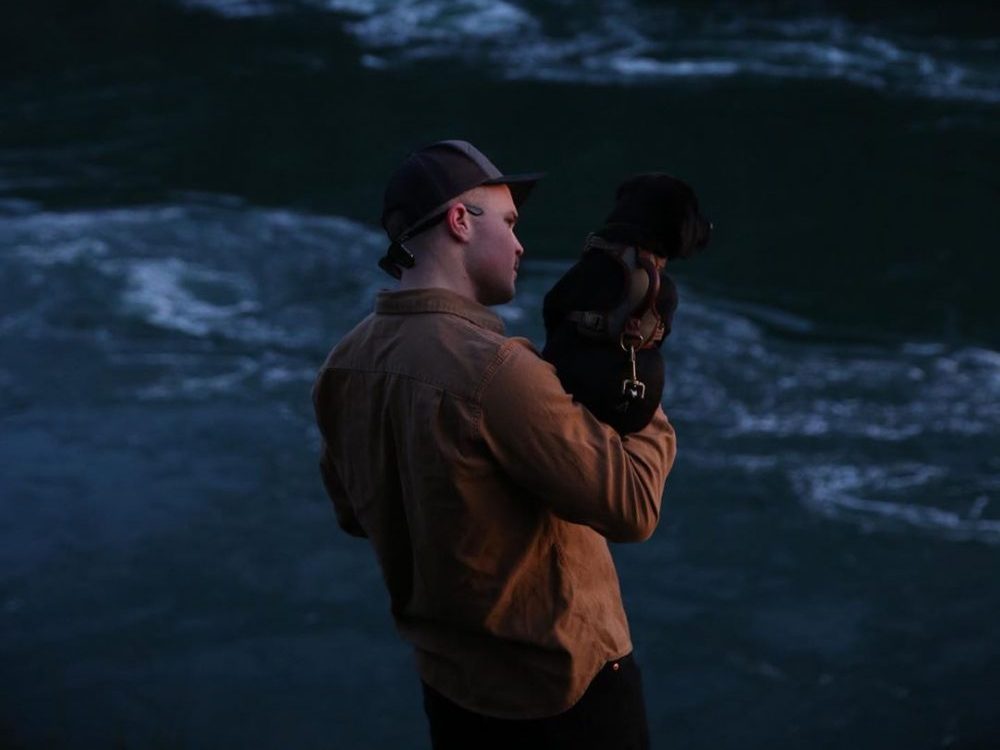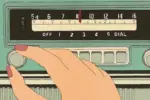In the last two decades, country music has become a pop-ified, glamorous and overly produced genre. Enter Zach Bryan, a 23-year-old singer with a guitar, an unkempt mustache and a grainy, desperately romantic voice. Bryan, an Oklahoma native, posts most of his music on his YouTube channel directly from his iPhone. He exploded in popularity after releasing a video of himself playing an original song, “Heading South,” while dripping with sweat beside a campfire. Ever since, his fans have begged him to “go big,” proclaiming him the “savior of country music.”
Country lyrics have long celebrated blue-collar lifestyles, the countryside and life’s simple pains and pleasures. Country music tends to stick to a few acoustic instruments and vocals. At its heart, it is rooted in simple, country living. Country music was born in the Appalachian region of Tennessee, evolving from “hillbilly music” and the blues. The invention of the radio helped popularize the music, with radio shows like the “Grand Ole Opry” airing across the nation. As the genre grew in popularity, its sound slowly evolved. Bluegrass turned into honky-tonk which turned into folk rock which turned into country pop.
Country pop is the version of country music most familiar to us, boasting stars like Carrie Underwood, Taylor Swift, Luke Bryan, Florida Georgia Line, Sam Hunt, Reba McEntire, the Dixie Chicks and Blake Shelton. Country pop is defined by its inclusion in mainstream music, specifically a song’s presence on the American Top 40 charts. Country pop is often less than authentic: Stars wearing cowboy boots and lots of makeup make millions of dollars singing to huge crowds about pickup trucks and blue-collar jobs. Pop country singers often repeat the same worn out lyrical tropes, usually written by hired lyricists and producers. They are pretty faces and mouths to spit moneymaking words out of, and millions of fans love it.
Country music has veered from its origins. The expectations of pop culture make it hard for authentically country musicians to break through. Breaking into the scene requires managers and producers, which require lots of money and commitment.
However, Zach Bryan has managed. Bryan has been employed in the Navy for six years, as per his family’s tradition, and spends his free time writing music for his own amusement and fulfillment. Bryan decided to start uploading his music to YouTube in 2017 with little expectation of recognition. Unlike other aspiring country musicians who perfect a demo before dropping it in the mailbox of a producer in hopes of being signed, most of Bryan’s songs are recorded by friends on an iPhone camera in a bedroom, garage or by a campfire on a hot night and uploaded directly to YouTube.
Bryan closes his eyes in most of his videos, a sheen of sweat displaying that he is clearly caught up in the heat of the moment. He sings without a microphone or amplifier and lets his frequent voice cracks enhance his signature sound. When he opens his mouth, he pours out his soul, both through his lyrics and the unfiltered, emotive wail of his voice. His lyrics are honest, hopeful and often self-deprecating. According to a fan in the comments section of “Heading South” on YouTube, “He doesn’t sing the lyrics. He bleeds them.”
Clearly disenchanted with the glamour of Nashville and radio-station country music, Bryan’s fans look to him for authenticity and rawness. Comments sections on his YouTube videos usually consist of listeners who hate the current direction of country music and have found solace in the singer’s grittiness.
— “Best raw song I’ve seen on YouTube in at least 3 years. Guitar and vocals, straight into the mic. No mix, no effects. Just plain good.”
— “I hated country before this then realized I had never heard real country.”
— “We need more campfire artists like these nowadays. Just a voice and a guitar. Your stuff is amazing man.”
— “This is now the third song I’ve heard by this guy. Why are his songs not on the radio? Much better than the s— they play nowadays.”
His videos quickly exploded in popularity, and fans in the comments section begged him to keep making music and wished aloud that he would replace the overproduced pop country idols that clog country stations today. And as a matter of fact, he had the opportunity to do just that.
After releasing his 2019 album, “DeAnn,” an album he recorded in his barn using basic recording equipment and surrounded by friends, Bryan was offered countless record deals with major country music labels. He turned them all down. We could easily theorize about his decision, but we don’t have to; his lyrics explain why. In his 2020 release, “Me and Mine,” Bryan sings: “They tell me I can sell my soul for a dream and a couple of shows/ I don’t think they understand how deep loyalty goes/ For some boys I got in a barn we built out of pure Douglas fir/ Badly written songs next to horses’ s— is what an Okie boy prefers/ … We started this thing grinnin’ boys, I think we’ve gotta run/ The radio man came to f— it up as he boasts about number ones.”
The lyrics make it clear that Bryan has no interest in messing up the simple, happy life he lives by signing with a “radio man,” which, in his own words, would be the same as “sell[ing] my soul.” Signing with a major record label could mean giving up his artistic integrity and freedom just for a “worthless dollar sign,” as per his “Heading South” lyrics.
No, Bryan isn’t looking for a hit radio single and a sold-out stadium tour. Of his latest album, the musician declares, “I don’t want a damn thing from it, I just hope y’all can find some hope listening to it.” He uses his songs to tell his truth and pour out his soul. He’s happy to write music casually and post it for whoever might come across it.
He restates his lyrical sentiments in prose in an Instagram caption he posted on May 1 before releasing his album “Elisabeth.” He tells his followers that he “kindly declined a lot of major record labels this year just so I could record this with my friends like we did the last one” and then goes on to explain that he doesn’t think the large scale music industry is his thing, and he will be leaving for a yearlong Navy deployment soon.
https://www.instagram.com/p/B_orlZBjOjz/
Bryan lives the life of an authentic country musician. He works 12-hour days, sits with his buddies by a fire and pours out a little piece of his soul with a guitar and a song. The old T-shirts and unkempt mustache aren’t performative; for Bryan, his appearance, like his music, is real and unfiltered. In his humble way, Bryan embodies all that we can learn from country music. In the words of a fan, Bryan “is what country music is all about.”

















